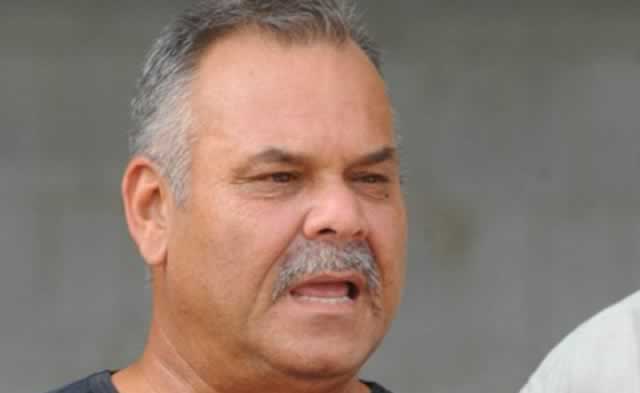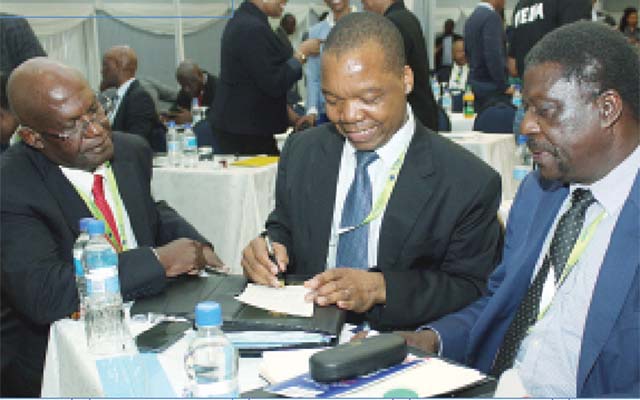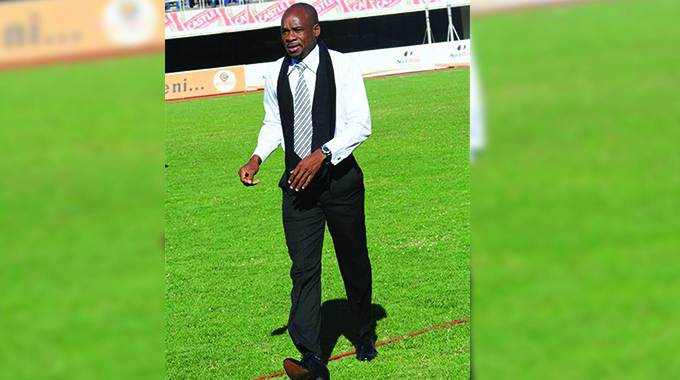Zim will end up like Kenya: Whatmore

DAV Whatmore is not a happy man. More than seven weeks after he was fired as Zimbabwe’s coach, his pulse still quickens in anger as he talks of never having been treated as poorly in his 21 years of coaching at international level as he was in his Zimbabwe stint.
According to Whatmore, there was nothing about the team’s lack of performance under the termination clauses in his contract. He says that the end came suddenly, without warning, during a training camp in Bulawayo at the end of May, when managing director Wilfred Mukondiwa delivered the news while Zimbabwe Cricket chairman Tavengwa Mukuhlani stared at the floor.
Mukuhlani declined to comment on the specifics of Whatmore’s sacking, pointing to a signed agreement between the parties that he believes is confidential. “We have never commented on our parting with him in the media based on that agreement,” he says.
Whatmore believes he was on notice from the time Mukuhlani became chairman last August, taking over from Wilson Manase, whose overtures in December 2014, Whatmore says, were the main reason he decided to take a job that looked increasingly like a poisoned chalice.
“These challenges are nothing new to me – taking on sides that are struggling,” Whatmore says. “But more than that, this chairman (Manase) followed up every call and every email and he wanted me, which was a great motivational factor.”
ZC had at the time sacked coach Stephen Mangongo after a tenure that culminated in a poor tour of Bangladesh where Zimbabwe lost all eight of their matches. Whatmore believes that tour had a knock-on influence on his own poor results as Zimbabwe coach.
“We were competitive in all the World Cup matches (in 2015) after I took over. But the afternoon of the Pakistan match in Queensland, when Brendan Taylor told me, ‘Dav, I’m sorry but I’m leaving’, I felt so dejected. I knew then that was the beginning of the end for that team. He was the only player who was able to win some games for you. When he told me that, it was a horrible feeling.
“When he’d made that decision to leave, he hadn’t known that I was going to be around, he didn’t know that there were going to be so many matches to be played in 2015, and he didn’t realise that the environment would be so much healthier for the whole team. So we were competitive in all of those games, but after he left, that’s when it became really difficult.”
Whatmore’s assertion that Taylor would have stayed on in Zimbabwe is backed up by an interview the batsman gave in January this year, when he said: “If it wasn’t for the tour to Bangladesh at the end of 2014, I would probably have seen myself still playing for Zimbabwe – certainly for another year.
“I’ve never hated cricket so much as on that tour. The way the players were handled and treated, especially spoken to, I couldn’t comprehend it. I think with the change of coach and the change of atmosphere, the way the players were so confident and relaxed when changes were made, I think that’s why I felt I could play my best cricket again at the World Cup, whereas in Bangladesh it was a torrid seven weeks.”
Despite Taylor’s superb World Cup, where he was the fourth highest run scorer, Zimbabwe only beat the UAE. They did, however, run South Africa, Pakistan and India close, and lost to Ireland by just five runs. Without Taylor, Whatmore’s Zimbabwe continued to struggle, but they did beat India in a T20I and won one-day games against New Zealand and Pakistan. Overall they won nine out of 33 completed ODIs under Whatmore, and six out of 20 T20Is, giving him win percentages that were slightly higher than Zimbabwe’s all-time records, and very similar to those of other coaches over the past six years.
But it was the twin series defeats to Afghanistan that irked Mukuhlani and his board. “If Whatmore was coaching India and he lost three times in a row to Afghanistan, would he have survived?” asks Mukuhlani. “Why on earth should he survive for doing that in Zimbabwe? Our ranking fell below Ireland and Afghanistan under his watch, so we need to be fair with each other.
“If Whatmore was fired after losing to India, I would not even have accepted the board to do that. But we struggled against Ireland in Harare and scraped through [Zimbabwe won a one-day series 2-1 in October]. We lost to Afghanistan three times in a row. We struggled against Scotland in the World T20. We were not very convincing against Hong Kong in that tournament, and we were completely outclassed by Afghanistan in the final match in Nagpur. So put yourself in my position and the board’s.”
In truth, Zimbabwe have never had a side that won frequently for over a decade now. The difference from one incarnation to the next is generally how competitive they are when they lose, and Whatmore’s team showed improvement in this regard. Just six out of their 24 defeats were by 100-plus runs or more than five wickets, whereas his two predecessors, Andy Waller and Mangongo, saw their teams lose 10 out of 27 ODIs by those margins, and win just six. In the wake of Whatmore’s dismissal, the three ODIs against India were all lost by eight or more wickets under interim coach Makhaya Ntini.
There was also improvement in the batting during Whatmore’s tenure. In 2014, only Sikandar Raza scored a century in Zimbabwe’s 16 ODIs. Under Whatmore, 10 hundreds were scored by six different batsmen in 32 ODIs between January 2015 and January 2016.
Whatmore accepts that his win-loss record was poor, but also points to the limiting factors. “To be smart about it, you look a bit deeper to see what you had to work with. That is paramount. And considering the available talent and the amount of times we had injuries to key players as well, I thought that we did as good a job as we possibly could. The biggest miss there was Brendan Taylor, and then we had a little gem in Graeme Cremer coming back. So one really good player left and one good one came back. If we had both of them, I reckon it would have been a bit different. We might have still had our fair share of losses, but we would have won one or two more.”
He adds that the defeat to Afghanistan in Bulawayo was not helped by the conditions Zimbabwe delivered. “We were giving them tailor-made conditions for the visiting team,” he says. “I just asked for something that’s hard and true. A little bit of spin is all right. Instead, we had subcontinental conditions. And don’t forget Graeme Cremer, our No. 1 spinner, was not available. But they don’t understand the game.
“The other major point upon reflection is that the decisions made by the (Mukuhlani) cricket board were taken by the board themselves, rather than going through the proper committees. They’re making arbitrary decisions, as people sitting around a table who know nothing about the game.
“Also, you’ve got to have a structure that has a pathway through which players can perform and then get promoted and then play meaningful competition and get promoted again, and so on. It’s non-existent in Zimbabwe. There is no clear pathway. Or no good pathway anyway. Four (franchise) teams? I mean bloody hell. And they play each other twice, so that’s six games a year, and that’s it. Some players are just playing the odd game a year because there’s no second team. Internationals come back into franchise teams and then your franchise guys are just carrying water. It is really a dereliction of duty for the game.”
Another bugbear for him was the fact that he had no say in the hiring and firing of assistant coaches once Mukuhlani took over. According to Whatmore, Waller was axed as batting coach — despite the batsmen’s gains – without his input, and Ntini and Marvin Atapattu were brought on board. “I thought it was disrespectful,” he says. “I’m expected to work with these people and they report to me, but I have no say about who they are.”
Mukuhlani claims that Whatmore’s complaint is inconsistent: “When he was appointed by the previous administration, Whatmore did not come with backroom staff and he had no issue with that. Now that we are giving him backroom staff, he has an issue with our appointments, I find that very confusing. That’s number one.
“Number two is that after every series, the technical staff must give their feedback. There was no request from Dav that he would want to appoint his backroom staff. We have a duty – not only a moral one but a constitutional one – to appoint the technical staff. It is within our rights.”
Whatmore says that he was entitled to the final nine months’ pay from his contract when he was sacked. Instead he settled for three months, plus leave owing, bonuses owing and reimbursement for flights. “I could have sued them but it would have been like another Phil Simmons,” he says. Simmons’ legal wrangle with ZC has stretched for more than a decade following his dismissal as Zimbabwe coach in 2005, when he had two years remaining on his contract.
Whatmore’s dismissal at the end of May meant that Zimbabwe had been through three coaches in two years. They also shuffled through three captains, three selection convenors, two bowling coaches and three batting coaches or consultants between India’s tour in July last year and their visit this June. “The main issue is that ZC looks to blame everyone else and never points the finger while looking into the mirror,” Whatmore says.
“I think it will end up like Kenya. Cricket will never die because it’s in the schools and some of the schools take it seriously even if they may not play enough cricket. And it will be exposed on television – there will always be some competition there. But already, players are preferring to go overseas to further their careers. If you really had to predict, I can’t see it surviving internationally – particularly if they don’t get the same funding. They’re getting $8-9 million a year and they’ve got a debt of almost $20m. If they get a reduced amount of funding, what’s going to happen then?” – ESPNcricinfo











Comments